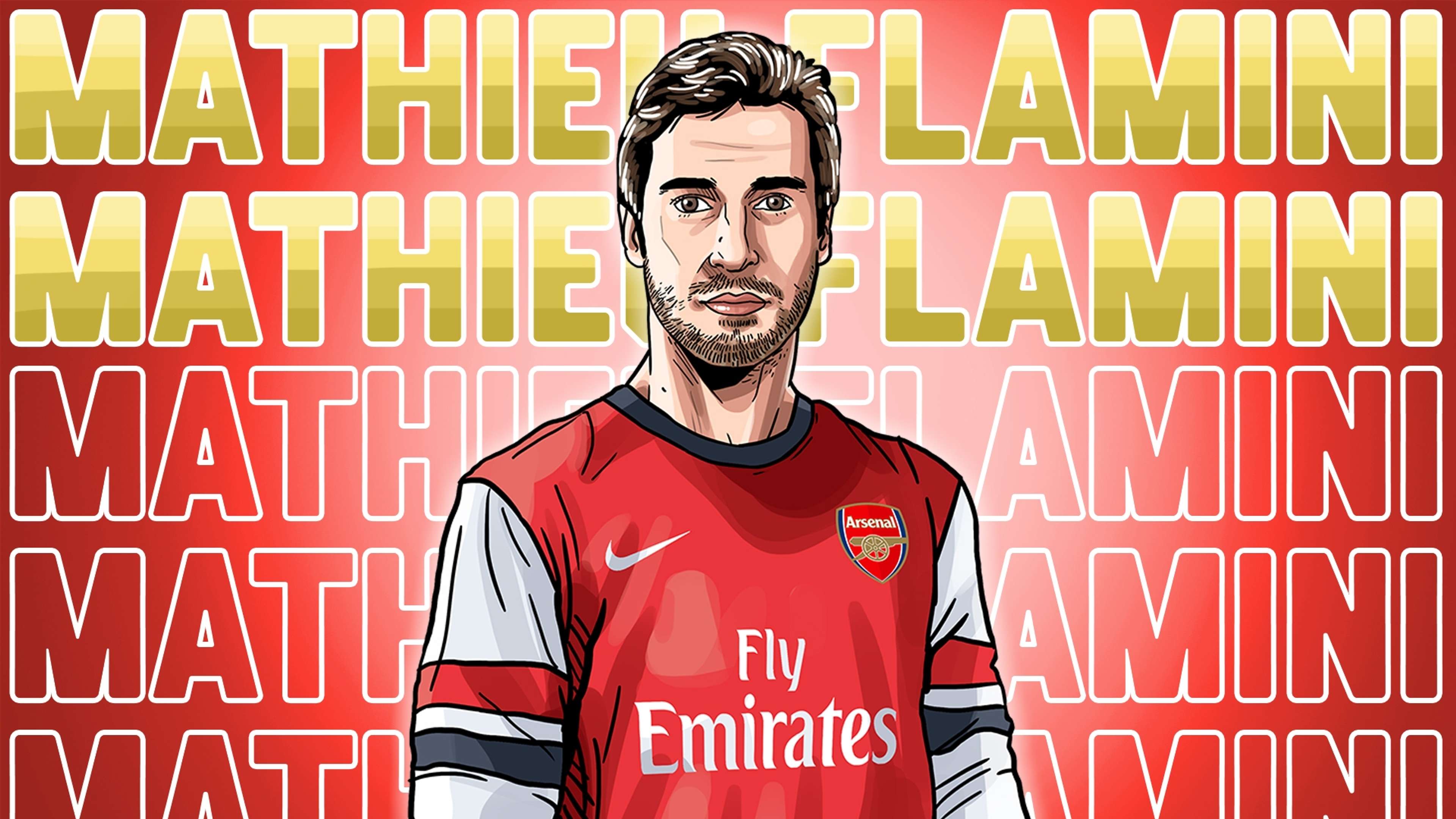When footballers retire from playing, they can take a multitude of routes. Some go into coaching or punditry, while others decide to leave the game behind.
Few take a leading role in the fight against climate change and the production of renewable energy resources.
Mathieu Flamini may have had a steady career as a utility footballer who played for Marseille, Arsenal and AC Milan, among others, but what he has done after hanging up his boots has proven pretty spectacular.
Flamini came through the Marseille academy, breaking into the first team in 2003-04 and playing in the UEFA Cup final that season.
This caught the attention of Arsene Wenger, with Arsenal swooping to sign Flamini on his first professional contract, a move which infuriated then-OM manager Jose Anigo.
"It's a great betrayal. He used me well. It's good for the money that he didn't sign pro with us. His sporting argument that he was afraid of playing less no longer holds," said Anigo. "My outlook will never be the same again."
Anigo's warnings that Flamini would struggle to break into the Gunners first team proved initially inaccurate, as, after a season of settling in, he was crucial in Arsenal's 2005-06 campaign, playing in 49 matches across all competitions as they reached the Champions League final.
However, Flamini never really mastered the midfield anchor role that his energy, intelligence and ability should have made him ideal for.
Instead, his positional flexibility, along with his strong work rate and team ethic, turned him into a utility man, deployed at full-back and wide midfield as well as in his best central midfield role, often coming on as a sub while Cesc Fabregas and Gilberto Silva filled the starting roles.
There were some moments of brilliance, such as his long-range strike against Newcastle in January 2008 that was voted among the 50 greatest Arsenal goals of all time, but they were frustratingly fleeting, for fans and player.
Flamini chose to move on at the end of his four-year deal, signing for Milan, where he continued to be the jack of all trades, initially playing at right-back before being moved to midfield.
He helped Milan to the 2010-11 Scudetto – their last Serie A title at the time of writing – before a knee injury that summer ruled him out for almost the entirety of the subsequent campaign.
Released by Milan in 2013, he returned to Arsenal initially to train and maintain fitness before signing permanently.
He was part of the squads which won back to back FA Cups in 2014 and 2015, however was an unused sub in both games, having also been left out for the Gunners' previous triumph in 2005.
Flamini departed Arsenal for the final time in 2016 – remarkably having never lost a Premier League match at home for the club – and after stints with Crystal Palace and Getafe, he retired from professional football, and moved full time into a second career which looks to be far more meaningful than his first.
During his football career, in 2008, Flamini co-founded GF Biochemicals, the first company in the world to mass-produce levulinic acid, which is regarded as potentially being key in the production of more environmentally friendly biofuels.
It can also be used in biodegradable herbicides, plus in several other household items, like air fresheners and perfumes, as well as in plastics and pharmaceuticals.
A genuine entrepreneur, Flamini's worth is estimated at around €20 million (£16.7m/$21.7m), enough to dwarf even any Premier League footballer.
"Growing up by the sea, I could see from a very early age the impact of plastics in the water, on the beach," Flamini told the Guardian in August 2020.
"It’s horrendous and makes you realise that, if we don’t change something, the place where we live won’t be liveable any more.
"I was very aware of everything, very curious. I always told myself: ‘If I do something else later on outside football, I want it to be around sustainability.'"
His success in the world of business brought Flamini back around into the Arsenal discussion in November 2020, when unhappiness with the ownership of Stan Kroenke led to rumours the former player could lead a takeover of his old club.
While he rejected talk of a takeover at the time, Flamini indicated a return to football at some point is on the cards.
He told The Athletic: “Don’t ask me how I’ll be involved in football, because it’s not something I’ve thought about.
"But, definitely, it’s something which I’ve been part of forever in my life. I will always want to be part of this community.”
It seems likely that Flamini will return to football at some point in the future – as he plays his part in making sure we all have a future to look forward to.
